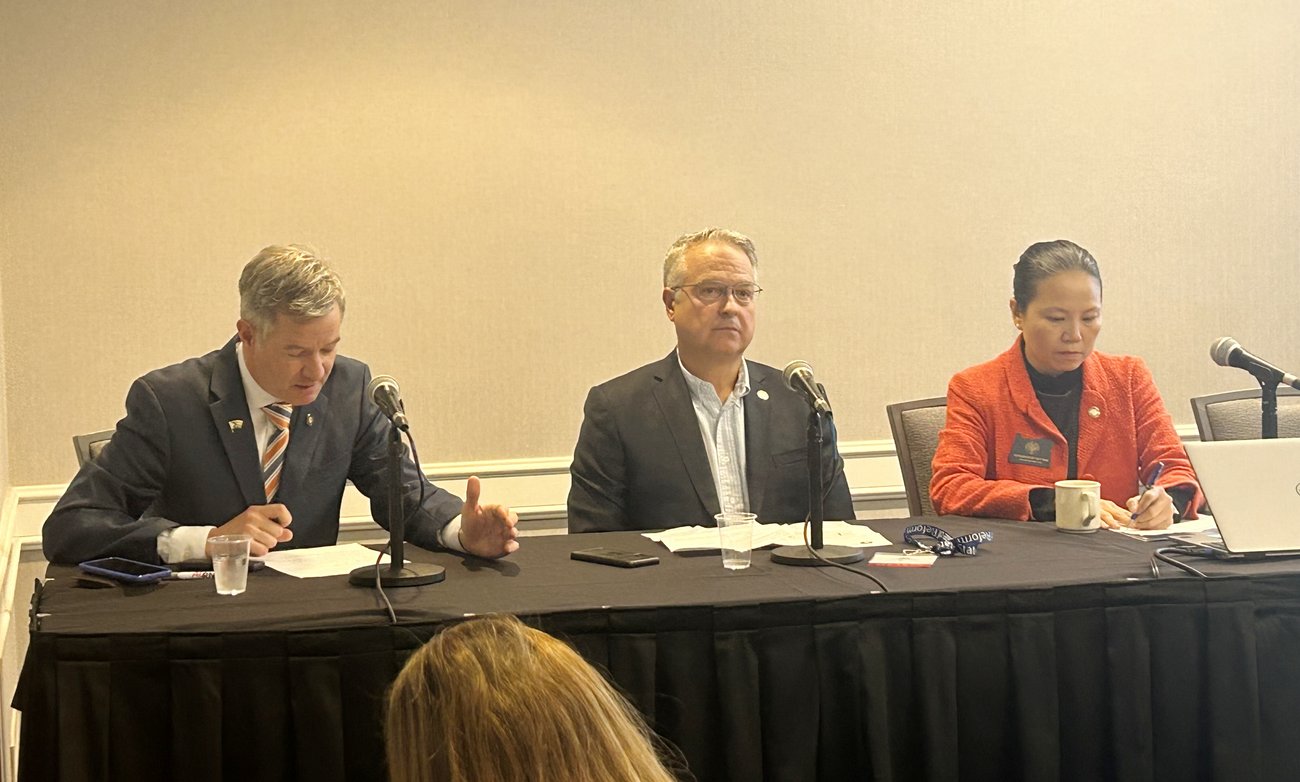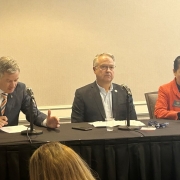State of Reform Conference Focuses on New CCO Workgroup, Measure 110
The annual Oregon State of Reform Health Policy Conference took place at the Hilton Hotel in Downtown Portland on November 14, 2023. The opening session centered on Coordinated Care Organizations, featuring speakers like Seamus McCarthy, CEO of Yamhill Community Care, and Mindy Stadlander, CEO of Health Share of Oregon.
During the legislative panel, Rep. Rob Nosse (D-Portland), Rep. Ed Diehl (R-Stayton) and Thuy Tran (D-Portland) from the Behavioral Health & Healthcare Committee, had a wide-ranging discussion of healthcare policy priorities moderated by Dan Cushing, government affairs director at Yamhill Community Care. Topics included a comprehensive CCO workgroup slated for 2025 and Ballot Measure 110.

2025 CCO Workgroup
During the 2023 Legislative Session, Rep. Nosse began talking about pulling together a comprehensive workgroup in the lead up to and during the 2025 legislative session to discuss the CCO model in Oregon. Prior to the State of Reform panel, the precise focus on this workgroup’s discussion remained vague, despite coming up fairly often in public discussions.
During the panel discussion, Rep. Nosse outlined the following priorities for the workgroup:
- Outcomes for CCO members and their communities;
- The regulatory framework that CCOs operate within;
- CCO finances, with a focus on provider assessments and the medical loss ratio; and
- The duration of CCO contracts after the next procurement.
With this framework now public, it will be easier to tailor COHO’s activities over the course of the next 18 months to dovetail with these future conversations.
Ballot Measure 110
Reforms to the Drug Addiction, Treatment and Recovery Act (Measure 110) passed by Oregon voters in November of 2020 have been front of mind for anyone having serious discussions about health policy in Oregon. “I think most of you know we are struggling with the rollout and implementation of ballot Measure 110,” Rep. Nosse said during the panel discussion.
Rep. Diehl echoed concerns brought forward by individuals who believe that decriminalization efforts have gone too far and have resulted in unintended consequences. “I think one element of it has to be re-criminalization of possession — not to throw people in jail, but to give some incentive to pursue treatment,” he said.
Some of Rep. Tran’s comments focused upon the behavioral health workforce shortage, which has been simmering for decades. The solutions to this vexing issue need to be home grown. Put succinctly, by Rep. Tran, “it’s just not going to magically appear.”
The COHO government affairs team will be working with their medical and behavioral health directors to establish some nonpolitical guideposts for this reform effort, which will be shared with policy makers early next year.

